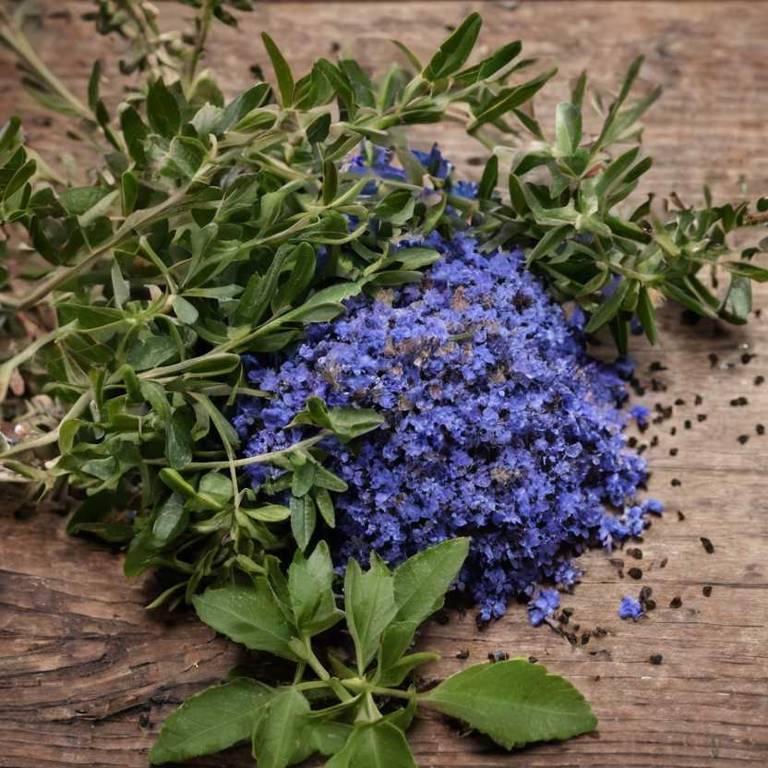Ceanothus Americanus: What To Know Before Using It For Medicinal Purposes

Ceanothus americanus, commonly known as the California lilac, has been traditionally used for its medicinal properties by Native American tribes.
The plant contains compounds such as flavonoids and tannins, which may have anti-inflammatory and astringent effects. It has been used to treat skin conditions, such as wounds and infections, due to its antimicrobial properties. Some historical uses also suggest it may help with digestive issues and respiratory ailments.
However, modern scientific research on its medicinal applications is limited, and its use should be approached with caution and under professional guidance.
Health Benefits
Ceanothus americanus has several health benefits, such as its potential to support respiratory health due to its anti-inflammatory properties.
The plant contains compounds that may help alleviate symptoms of respiratory conditions like asthma and bronchitis. Additionally, it has been traditionally used to promote skin health and wound healing because of its antimicrobial and antioxidant properties. Some studies suggest that Ceanothus americanus may also aid in reducing inflammation and supporting immune function.
However, further research is needed to fully understand its therapeutic potential and ensure safe usage.
10 Best Health Beneift of Ceanothus americanus
Bioactive Constituents
Ceanothus americanus has several bioactive constituents, such as alkaloids, flavonoids, and saponins, which contribute to its medicinal properties.
These compounds exhibit antioxidant, anti-inflammatory, and antimicrobial activities, making the plant a valuable resource in traditional and modern pharmacology. Alkaloids like ceanothine have been shown to possess sedative and analgesic effects, while flavonoids help in reducing oxidative stress and supporting cardiovascular health. Saponins in Ceanothus americanus may also aid in lowering cholesterol levels and enhancing immune function.
Due to these bioactive properties, further research into its potential therapeutic applications is warranted.
Medicinal Preparations
Ceanothus americanus has several medicinal preparations, such as teas, tinctures, and topical salves, that have been traditionally used for their therapeutic properties.
The leaves and flowers of this plant are commonly brewed into herbal teas to alleviate symptoms of respiratory conditions like coughs and bronchitis. Tinctures made from the plant are believed to support liver function and act as a mild diuretic. Additionally, its extracts have been applied topically to treat skin irritations and reduce inflammation.
These preparations are often used in traditional medicine and are gaining interest in modern herbal practices for their potential health benefits.
Side Effects
Ceanothus americanus can have some side effects, such as skin irritation or allergic reactions when coming into contact with the plant's leaves or flowers.
Ingestion of the plant may lead to gastrointestinal discomfort, including nausea, vomiting, or stomach cramps. While there is limited research on its toxicity to humans, some reports suggest that it may cause respiratory issues if its pollen is inhaled, especially by individuals with asthma or allergies. The plant is also known to be toxic to livestock, with potential effects ranging from digestive upset to more severe poisoning.
Due to these risks, it is advisable to handle the plant with care and avoid ingestion, particularly for children and pets.